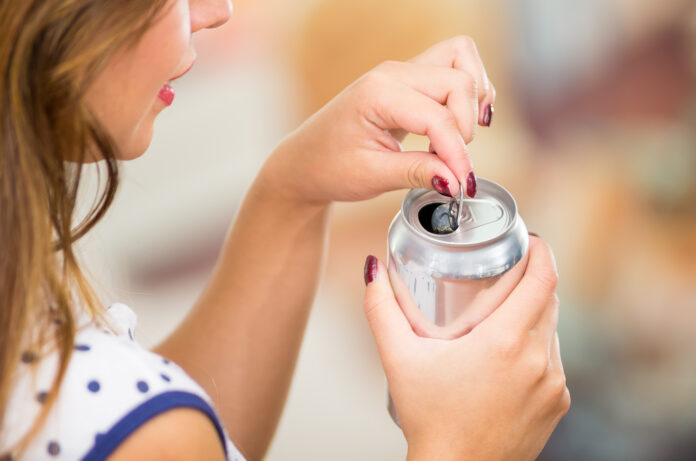Parents are being warned about the dangers of energy drinks as a new craze sees children and teenagers obsessing over “influencer” products.
At least one school on the Coast has banned students bringing the energy drinks to school amid the craze.
There has been a spike in popularity of drinks from the brand Prime, launched in January 2022 by social media influencers KSI and Logan Paul.
There are two Prime drinks: a hydration version and the energy drink. While the hydration drink does not contain caffeine, it contains a significant amount of electrolytes that are not recommended for children. It is available from retailers in Australia.
The energy drink contains 200mg of caffeine per 355mL can (about 560mg per litre), almost double the legal limit of 320mg of caffeine per litre. By comparison, Red Bull has about 300mg of caffeine per litre.
The Prime website recommends that it not consumed by people under the age of 18. It is not available from Australian retailers but can be bought online.
Students are reportedly selling the drinks for up to $20 a can at schools.
Good Samaritan Catholic College at Bli Bli is among the schools dealing with the issue.
Principal Greg Myers said the craze was extremely dangerous for students and has urged parents to be aware of what their children are consuming – by way of food and drink, and on social media.

“We don’t encourage kids to bring any energy drinks to school,” Mr Myers told Sunshine Coast News.
“Kids are drinking these drinks because it’s a celebrity endorsement, they’re not drinking it for taste.
“We need to ensure that we continually monitor what our children are consuming in the digital world and real world.
“Our advice to parents is to read the label around what’s in these things and make an informed decision.”
Mr Myers wrote a letter to parents last month outlining the dangers of the drinks and asking students not to bring them to school.
“There are plenty of healthy alternatives available – the best being water!” he wrote.
Health experts are reminding parents on the dangers of caffeine consumption among children and teenagers.
Children’s Health Queensland dietitian Madeleine Davey said caffeine had a range of health impacts including insomnia, dizziness, headaches and difficulty concentrating.
“Childhood and adolescence is a period of growth and development when young people are particularly vulnerable to the negative effects of caffeine,” Ms Davey said.
“It is best that children avoid caffeinated drinks until the end of adolescence while they are growing and their bones are developing.
“If caffeine is required, it is best to keep serving sizes to a minimum.
“Too much caffeine can lead to insomnia, jitteriness, a rise in body temperature, dehydration, gastrointestinal inflammation, frequent urination, dizziness and headaches, difficulty concentrating, anxiety and irritability, and an increased heart rate.
“Caffeine can also aggravate heart issues and other health problems.”
Ms Davey said these symptoms could occur after only a small amount of caffeine, particularly in younger children.
She said the acidic nature of caffeine also decreased tooth enamel, increasing risk of oral health problems, and could interfere with calcium absorption at a time when bones were still strengthening.
“Many caffeinated drinks also contain other harmful chemicals and unhealthy amounts of sugar, fat and calories,” she said.
SUBSCRIBE here now for our FREE news feed, direct to your inbox daily.





